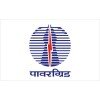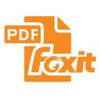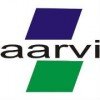Junior Trainee
20+ Junior Trainee Interview Questions and Answers

Asked in Accenture

Q. How can you determine if a student understands the material or needs additional instruction?
Assessing student understanding of material
Ask open-ended questions to gauge comprehension
Observe student performance on assignments and assessments
Provide opportunities for students to apply knowledge in different contexts
Offer individualized support and feedback
Use formative assessments to identify areas of weakness
Encourage students to ask questions and seek clarification

Asked in Lupin

Q. What do you know about Upstream and downstream Processes?
Upstream processes involve raw material sourcing and preparation, while downstream processes focus on purification and packaging of the final product.
Upstream processes involve sourcing raw materials, such as cell lines or chemicals.
Downstream processes focus on purification, filtration, and packaging of the final product.
Examples of upstream processes include fermentation and cell culture.
Examples of downstream processes include chromatography and filtration.
Junior Trainee Interview Questions and Answers for Freshers

Asked in L&T Construction

Q. How is the moment of inertia helpful in designing structures?
Moment of inertia helps in designing structures by determining their resistance to rotational motion.
Moment of inertia is a measure of an object's resistance to rotational motion.
It helps in designing structures by determining their ability to resist bending and twisting forces.
For example, in bridge design, moment of inertia is used to determine the strength and stability of the bridge's beams.
Similarly, in building design, moment of inertia is used to determine the strength...read more

Asked in Lupin

Q. Do you have any idea about Quality assurance?
Quality assurance involves ensuring that products or services meet specified requirements and standards.
Quality assurance is a process that focuses on preventing defects and errors in products or services.
It involves creating and implementing quality control processes to ensure consistency and reliability.
Quality assurance also includes monitoring and evaluating the effectiveness of these processes to continuously improve quality.
Examples of quality assurance activities inclu...read more

Asked in Momentive Performance Materials

Q. What is the meaning of polymerization?
Polymer station refers to a facility where polymers are produced or processed.
Polymer station is a facility that produces or processes polymers
It may involve chemical reactions, extrusion, molding, or other processes
Examples include polymerization plants, plastic manufacturing facilities, and polymer processing centers

Asked in Power Grid Corporation of India

Q. What is a transmission line and what are its types?
Transmission line is a medium that carries electrical energy from one point to another. There are two types: overhead and underground.
Transmission line is used to transmit electrical energy from power plants to substations and then to homes and businesses.
Overhead transmission lines are supported by towers or poles and are visible above ground.
Underground transmission lines are buried underground and are not visible.
Overhead transmission lines are cheaper to install but are m...read more

Asked in Momentive Performance Materials

Q. What is an emulsion?
Emulsion is a mixture of two immiscible liquids, where one is dispersed in the other in the form of small droplets.
Emulsion is a type of colloid.
It is formed by mixing two immiscible liquids, such as oil and water.
The liquid that is dispersed in the other is called the dispersed phase, while the liquid in which it is dispersed is called the continuous phase.
Examples of emulsions include milk, mayonnaise, and paint.
Emulsions are used in various industries, such as food, cosmet...read more

Asked in R1 RCM

Q. What is a pitch circle?
Pitch circle is an imaginary circle that passes through the point of contact of two meshing gears.
It is used to determine the gear ratio and the velocity ratio of the gears.
It is also used to calculate the center distance between the gears.
The diameter of the pitch circle is proportional to the number of teeth on the gear.
The pitch circle is also known as the reference circle or the pitch diameter.
Share interview questions and help millions of jobseekers 🌟


Asked in Power Grid Corporation of India

Q. Can a step-up transformer be used as a step-down transformer?
A step-up transformer cannot function as a step-down transformer due to its design and operational principles.
Step-up transformers increase voltage and decrease current.
Step-down transformers decrease voltage and increase current.
Example: A step-up transformer is used in power plants to transmit electricity over long distances.
Example: A step-down transformer is used in household devices to reduce voltage for safe use.

Asked in Emcure Pharmaceuticals

Q. Ph is the negative logathirum of base 10 of h+ion
pH is a measure of acidity or alkalinity of a solution based on the concentration of hydrogen ions.
pH scale ranges from 0 to 14, with 7 being neutral
Acidic solutions have a pH below 7, while alkaline solutions have a pH above 7
pH can be measured using pH paper, pH meter or indicators
Examples of pH values: lemon juice (pH 2), water (pH 7), baking soda (pH 9)

Asked in Urban Money

Q. What is the quality?
Quality refers to the standard or level of excellence of something.
Quality is a measure of how well something meets its intended purpose or satisfies customer expectations.
It can be subjective and vary depending on individual preferences and requirements.
Quality can be assessed through various factors such as durability, reliability, performance, and customer satisfaction.
Examples of quality include a well-built and long-lasting product, a reliable and efficient service, or a...read more

Asked in R1 RCM

Q. Define two-stroke and four-stroke engines.
Two stroke and four stroke are types of internal combustion engines used in vehicles and machines.
Two stroke engines complete a power cycle in two strokes of the piston, while four stroke engines complete it in four strokes.
Two stroke engines have a simpler design and are lighter, but are less fuel efficient and emit more pollutants.
Four stroke engines are more complex and heavier, but are more fuel efficient and emit fewer pollutants.
Examples of vehicles that use two stroke ...read more

Asked in IQVIA

Q. What is pharmacovigilance?
Pharmacovigilance is the science and activities related to the detection, assessment, understanding, and prevention of adverse effects or any other drug-related problems.
Pharmacovigilance involves monitoring and evaluating the safety of pharmaceutical products.
It aims to identify and prevent adverse drug reactions (ADRs) and other drug-related issues.
Pharmacovigilance activities include collecting and analyzing data on drug safety, conducting clinical trials, and implementing...read more

Asked in L&T Construction

Q. What is moment of India
Moment of India refers to the current state of affairs in India and its impact on the world.
India is currently the world's fastest-growing major economy
India is a major player in global politics and diplomacy
India is home to a diverse and vibrant culture
India faces challenges such as poverty, corruption, and social inequality
India's moment is shaped by its history, geography, and people

Asked in Momentive Performance Materials

Q. What does D4 mean?
D4 is a reference to a specific size of paper in ISO 216 standard.
D4 paper size measures 210 mm x 292 mm.
It is slightly larger than the commonly used A4 size.
D4 is not commonly used and is not readily available in most countries.

Asked in Momentive Performance Materials

Q. What does PDMS stand for?
PDMS stands for Plant Design Management System, a software used in engineering and construction industries.
PDMS is a 3D modeling software used in the design and construction of plants and offshore facilities.
It is used to create detailed models of piping, equipment, and structural components.
PDMS allows for easy collaboration between different teams and disciplines involved in a project.
It is widely used in industries such as oil and gas, chemical, and power generation.
PDMS c...read more

Asked in Momentive Performance Materials

Q. What is the meaning of D5?
D5 is a type of intravenous fluid used in medical settings.
D5 stands for 5% dextrose in water
It is used to provide hydration and energy to patients
D5 is often used in conjunction with other medications or fluids
It is important to monitor patients receiving D5 for any adverse reactions

Asked in Mindgraph

Q. odd or even Program without using loop
Check if a number is odd or even without using loops
Use bitwise AND operator with 1 to check if the least significant bit is 1 or 0
If the result is 1, the number is odd. If the result is 0, the number is even
Example: int num = 5; if((num & 1) == 1) { // odd number } else { // even number }

Asked in Foxit

Q. What is the difference between QA and QC?
QA (Quality Assurance) focuses on preventing defects, while QC (Quality Control) focuses on identifying and fixing defects.
QA is a proactive process that ensures quality standards are met throughout the development process.
QC is a reactive process that involves testing and inspecting the final product to identify defects.
QA involves activities like requirement analysis, test planning, and process improvement.
QC involves activities like testing, inspection, and defect tracking...read more

Asked in Aarvi Encon

Q. Transmission line used in Star and Delta
Star and Delta configurations are used in electrical transmission lines to manage voltage and current effectively.
Star (Y) configuration connects one end of each phase to a common point, reducing voltage across each phase.
Delta (Δ) configuration connects each phase to the next, allowing for higher current capacity and balanced load.
Star is often used in low-voltage applications, while Delta is preferred for high-voltage systems.
Example: Star connection is common in transforme...read more

Asked in RS Software (India) Ltd.

Q. What is your experience with automation?
Automation is the use of technology to perform tasks without human intervention.
Automation can increase efficiency and accuracy in various industries.
Examples of automation include robotic process automation, chatbots, and self-driving cars.
Automation can also lead to job displacement and require new skill sets for workers.
Continuous monitoring and improvement are necessary for successful automation implementation.

Asked in Power Grid Corporation of India

Q. What is La?
La is the chemical symbol for the element Lanthanum, a soft, silvery-white metal.
Lanthanum is a rare earth element found in minerals such as monazite and bastnasite.
It has various applications in industries such as electronics, lighting, and camera lenses.
Lanthanum carbonate is used as a medication to treat high levels of phosphate in the blood of patients with kidney disease.
It was first discovered in 1839 by Swedish chemist Carl Gustav Mosander.
Lanthanum has a relatively lo...read more
Asked in S P Engineers Autotech

Q. What is M20 grade cement?
M20 grade cement is a type of cement with a compressive strength of 20 megapascals after 28 days of curing.
M20 grade cement is commonly used in construction for residential buildings.
It is a mix of 1 part cement, 1.5 parts sand, and 3 parts aggregate.
The compressive strength of M20 grade cement is achieved after 28 days of curing.
It is suitable for non-structural works like plastering and flooring.

Asked in Infosys

Q. What are the basics of OOP concepts?
OOP (Object-Oriented Programming) is a programming paradigm based on objects and classes, promoting code reusability and organization.
Encapsulation: Bundling data and methods that operate on the data within one unit (e.g., a class).
Inheritance: Mechanism to create a new class using properties and methods of an existing class (e.g., a 'Dog' class inheriting from an 'Animal' class).
Polymorphism: Ability to present the same interface for different underlying data types (e.g., me...read more

Asked in Power Grid Corporation of India

Q. What is the purpose of PGCIL?
Power Grid Corporation of India Limited (PGCIL) is a state-owned electric utility company.
PGCIL is responsible for the transmission of power across India.
It was established in 1989 and is headquartered in Gurgaon, Haryana.
PGCIL operates and maintains over 1,50,000 circuit kilometers of transmission lines.
It also operates over 238 substations and has a total transformation capacity of over 3,50,000 MVA.
PGCIL plays a crucial role in ensuring uninterrupted power supply to the co...read more

Asked in Aarvi Encon

Q. What are the advantages of using an SF6 breaker?
SF6 breakers use sulfur hexafluoride gas for insulation and arc-extinguishing, providing efficient and reliable performance in electrical systems.
SF6 (sulfur hexafluoride) is an excellent insulator, allowing for compact designs in substations.
It has a high dielectric strength, which means it can withstand high voltages without breaking down.
SF6 breakers are effective in interrupting electrical arcs, making them suitable for high-voltage applications.
They are used in various a...read more
Asked in S P Engineers Autotech

Q. What is fe415 stell
Fe415 steel is a type of TMT steel bar commonly used in construction for its high strength and ductility.
Fe415 steel has a minimum yield strength of 415 MPa.
It is commonly used in reinforced concrete structures for its ability to withstand heavy loads.
Fe415 steel bars have good ductility and can be easily bent or twisted without breaking.
The 'Fe' in Fe415 stands for iron, while '415' represents the minimum yield strength in MPa.

Asked in Orchid Pharma

Q. What is pH?
pH is a measure of the acidity or basicity of a solution.
pH stands for 'potential of hydrogen'
It is measured on a scale of 0-14
A pH of 7 is neutral, below 7 is acidic, and above 7 is basic
pH is important in many fields, including chemistry, biology, and environmental science
Interview Questions of Similar Designations
Interview Experiences of Popular Companies








Reviews
Interviews
Salaries
Users

















